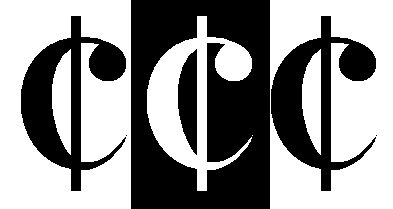Thursday 21st March 2024
English Chamber Orchestra Ensemble
String Octet with Ofer Falk solo violin/director
The ECO is one of the world’s leading chamber orchestras, having performed in more countries than any other orchestra, and played with the world’s greatest musicians in its five decades of history. Over the years its soloists and conductors have included Vladimir Ashkenazy, Janet Baker, Daniel Barenboim, Benjamin Britten, Colin Davis, and many more. Since 1977 the ECO is delighted to have had as its Patron HM King Charles III and the Orchestra has performed at many royal events for him and his family including The Prince of Wales’ 50th birthday Gala Concert.
In this concert the top string players of the ECO will be led by violinist Ofer Falk. Ofer frequently steps in as leader of the ECO and has been leader of the Schidlof and Allegri Quartets.
PROGRAMME:
Bartok Rumanian Folk Dances Sz 68
Mendelssohn Violin concerto in E minor Op.64
Mendelssohn Octet in E flat Op. 20
English Chamber Orchestra Ensemble
Review
Scintillating String Playing at Chichester’s Assembly Room
The 2023-2024 series of Chichester Chamber Concerts at the Assembly Room, Chichester was brought to a glorious conclusion on Thursday [21st March] with a scintillating display of string playing by an ensemble drawn from the English Chamber Orchestra (ECO), one of the world’s leading chamber orchestras. On this occasion the ensemble was led by violinist and soloist Ofer Falk.
The evening began with the Romanian Folk Dances Sz 68 by Béla Bartόk. In 1905 Bartόk began an association with Zoltán Kodály to pursue a joint interest in, firstly, Hungarian and then Romanian folk music. The Romanian Folk Dances (Sz 56), based on melodies from the Transylvania region of Romania, which would originally have been played on the flute or violin, began life in 1915 as a suite of seven pieces for piano and was transcribed by the composer for small orchestra in 1917. The string version presented by the ECO on Thursday was arranged by Ofer Falk. With nine members of the ensemble already arranged in a semi-circle on stage (3 violin, 2 viola, 2 cello and 1 double bass), Ofer Falk contributed to the “folksiness” of the occasion by arriving on stage through the audience whilst playing the solo part. The dances were joyous and spirited, yet displayed a wide range of emotions in the space of little more than ten minutes, leaving the audience wanting for more. This was Bartok at his most benign and approachable. A delightful opening to the concert.
The rest of the evening belonged to Mendelssohn. The second item on the programme was no less than the familiar and much loved Violin Concerto in E minor, Op 64 but in an arrangement for solo violin and string octet by Mordecai and Ilan Rechtman. As in the Bartόk, Ofar Falk was the soloist standing in the centre of the stage with the remainder of the Ensemble in an arc behind him (the violins and violas playing whilst standing, as they did throughout the evening). First violin Lucy Jeal acted, effectively, as the Leader of the orchestra.
This unfamiliar arrangement threw up several surprises. The first was the richness of the sound produced by the nine players, filling the hall. Another was the clarity of the melodic line and the intimacy of the detail. The first movement was brisk and full of energy, a single sustained note on the cello, in place of the familiar bassoon, linking it seamlessly to the second. The second Andante movement was particularly effective, Ofer Falk’s solo violin being eloquently lyrical throughout. The delightful third movement, dancing and playful, brought the concerto to a scintillating conclusion. This arrangement is highly imaginative and stylistically persuasive, and allows this most popular of concertos to be performed and enjoyed in a small hall such as the Assembly Room. It is, of course, a different experience from hearing the full orchestral version in a large concert hall, especially without the contribution of the woodwind, but is highly enjoyable in its own right, especially when played with the flair exhibited by the skilled musicians of the ECO.
The evening ended with Mendelssohn’s magnificent Octet in E flat, Op. 20. Written when the composer was just 16 years old, this most inventive of pieces remains unsurpassed in its genre. It begins briskly, full of energy and verve, calling for precision playing by the ensemble. The second movement, based on a Siciliano, an Italian dance, is more subtle with a constant interweaving of themes. The Scherzo, as so often in Mendelssohn’s chamber works, is the gem of the piece. Pianissimo and staccato throughout this calls for, and received, playing of great delicacy. An energetic fugal finale, marked Presto, and opened by the second cello mounts through the instruments until a brief reappearance of the Scherzo is overpowered by a headlong rush to the triumphant conclusion. As in the concerto, the bold sound from the nine instruments filled the room.
A programme of great music, played with energy, flair and consummate skill; hugely enjoyed by the large audience and fully deserving of the partial standing ovation. The 2024/25 series of CCC concerts begins on Thursday 3rd October with a visit from Ensemble 360.
Peter Andrews

